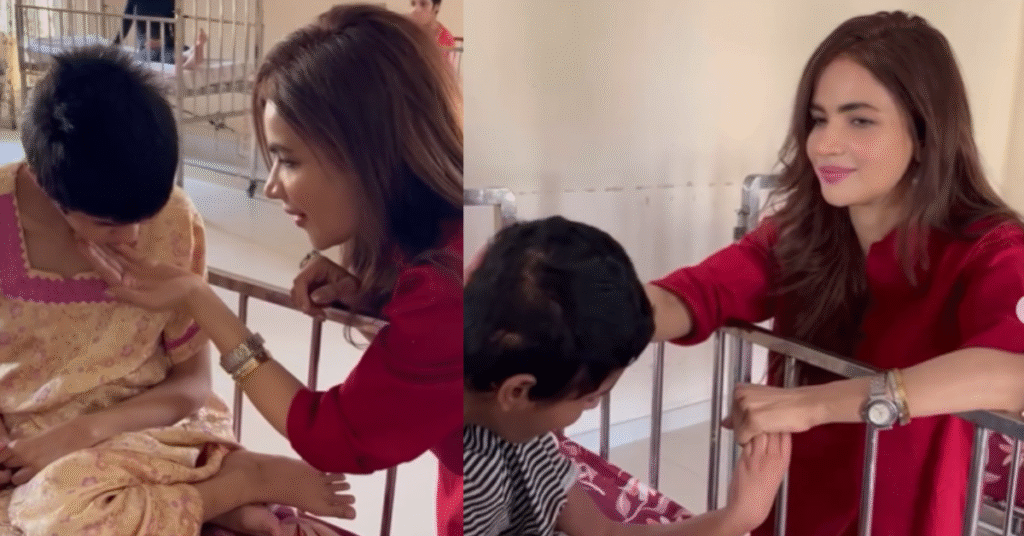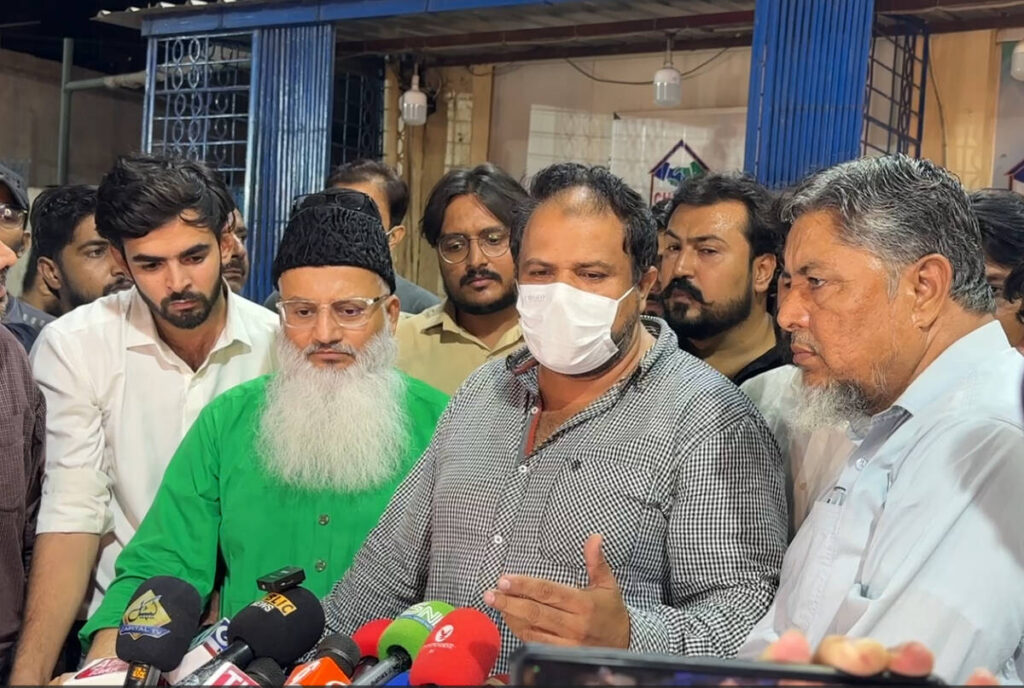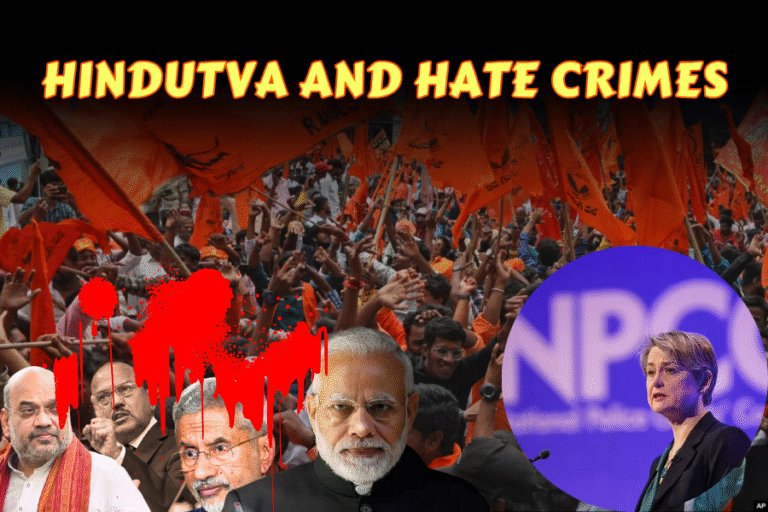(Quratulain Khalid)
The death of Humaira Asghar Ali, a 32-year-old Pakistani actress, model, and visual artist, in her Karachi apartment in July 2025 or earlier, sent shockwaves through Pakistan’s entertainment industry and sparked a national conversation about isolation, family dynamics, mental health, and the ethics of media coverage. Found in an advanced state of decomposition during a court-ordered eviction, Humaira’s tragic end highlighted the precarious lives of those in the glamour industry and the societal failures that left her unnoticed for months. This article explores her life, achievements, strained family relations, philanthropy, reputation, and the circumstances of her death. It condemns the unethical sharing of videos of her dead body by Chhipa Volunteers, offers advice to parents of independent children, and proposes societal reforms to foster compassion and accountability.
I. Humaira Asghar Ali: Life and Background
Born on 10 October 1992 in Lahore, Humaira Asghar Ali was the daughter of Dr Asghar Ali, a retired army doctor, and grew up in a family with two brothers and two sisters. Her early life in Lahore’s Green Town was marked by a passion for the arts, leading her to study Visual and Performing Arts at the National College of Arts (NCA) and the College of Art & Design at the University of the Punjab. Her artwork, often inspired by Urdu poetry and literature, focused on women’s empowerment and their role in society, reflecting her commitment to gender equality.
Humaira moved to Karachi in 2018, renting a flat in the upscale Defence Housing Authority (DHA) Phase VI, where she lived alone for seven years. Her decision to pursue a career in entertainment and modelling marked a departure from traditional expectations, likely causing tension with her family, as evidenced by their later estrangement. Her independence, while admirable, left her isolated, a factor that contributed to her unnoticed death.

II. Professional Achievements
Humaira’s career spanned television, film, modelling, and visual arts, earning her recognition as a multifaceted artist. She began with Rafi Peer Theatre during her college years, performing in plays before transitioning to modelling for prominent Pakistani brands. Her breakthrough came in 2014 when she won the Veet Miss Super Model competition, establishing her as a rising star.
Television and Film
Humaira gained prominence through ARY Digital’s reality show Tamasha Ghar (2022), a Big Brother-style programme that showcased her charisma and relatability. Her television credits include supporting roles in dramas such as:
- Benaam
- Just Married
- Chal Dil Mere
- Sirat-e-Mustaqeem (Laali)
- Guru
- Ehsaan Faramosh
In film, she appeared in the 2015 action-thriller Jalaibee and played a lead role in Aik Tha Badshah alongside Ali Hamza and Ali Noor. Her final film, Love Vaccine (2021), co-starred Farhan Saeed and Sonya Hussyn.

Artistic Contributions
As a painter and sculptor, Humaira’s work explored feminine strength and social progress. Her Instagram bio highlighted her artistic identity, and she shared glimpses of her fitness routine and creative process with her 715,000 followers. In 2023, she received the National Woman Leadership Award for Best Emerging Talent & Rising Star, which she celebrated on Instagram, writing, “This award means so much to me… as a symbol of what women can achieve and support to thrive if they are given the best opportunities.”
Her last known professional activity was a fashion shoot in September 2024, with no further public appearances or social media posts after 30 September 2024, marking the beginning of her withdrawal from public life.
III. Family Relations and Estrangement
Humaira’s relationship with her family was strained, a factor central to the tragedy of her death. Her brother, Naveed Asghar, revealed she had moved to Karachi seven years prior and visited Lahore infrequently, sometimes after a year or more. Her mobile phone was switched off for six months before her death, and her mother’s attempts to contact her were unsuccessful, indicating a significant communication gap.
Initial reports suggested her family, particularly her father, Dr Asghar Ali, refused to claim her body, with him allegedly stating, “We have cut off ties with her long ago. Do whatever you want with her body.” This sparked outrage, amplified by social media posts on X, with users like @SameenaSultan16 decrying the family’s response as reflective of societal stigma against women pursuing independent careers.
However, Naveed Asghar later clarified that the family had not disowned Humaira, citing a miscommunication exacerbated by a recent family tragedy—the death of their paternal aunt in a traffic accident. He travelled to Karachi on 10 July 2025 to claim her body, which was transported to Lahore and buried on 11 July 2025 in Model Town’s Q Block graveyard. The family’s initial reluctance, possibly driven by grief, cultural expectations, or stigma around Humaira’s career choice, highlighted the challenges faced by individuals defying traditional norms in Pakistan.
IV. Humanitarian Activities
Humaira Asghar Ali’s humanitarian contributions were deeply intertwined with her artistic endeavours, reflecting her commitment to social justice and women’s empowerment. Her paintings and sculptures, often exhibited at venues like Alhamra Arts Council, explored themes of feminine resilience and cultural identity, drawing inspiration from Urdu poetry and Pakistani literature. Through her art, she championed the voices of marginalised women, advocating for their agency in a patriarchal society.
Her National Woman Leadership Award (2023) recognised her efforts to inspire gender equality. In her acceptance speech, she emphasized creating opportunities for women to “unlock their true potential,” aligning with humanitarian goals of fostering inclusivity. On Instagram, Humaira occasionally shared messages encouraging self-expression and resilience, resonating with her 715,000 followers and promoting mental health awareness through posts about overcoming personal challenges.
While not formally affiliated with NGOs, Humaira’s public persona supported community upliftment. For instance, her participation in charity fashion shows in 2022, as noted in a Dawn article, raised funds for flood relief in Sindh, demonstrating her commitment to humanitarian causes. Her TikTok presence, though occasionally misattributed (e.g., a viral 2022 video credited to Dollyofficiall), amplified her influence in promoting empowerment and self-worth, particularly among young women in Pakistan.

V. Reputation in the Entertainment Industry
Humaira was regarded as a dedicated professional with a gentle disposition. Colleagues like Atiqa Odho, her co-star in Ehsaan Faramosh, described her as a “gentle soul” with “so much life to look forward to.” Humayun Saeed, Faysal Quraishi, and Adnan Siddiqui expressed grief on Instagram, emphasizing her professionalism and warmth. Her 715,000 Instagram followers reflected her popularity, though her reclusive nature in her final months suggested personal struggles.
The Pakistani entertainment industry, as noted in a 2025 Express Tribune article, often lacks support structures for emerging artists, leaving them vulnerable to isolation and exploitation. Humaira’s case highlighted this systemic issue, with X posts like @parhlo’s reigniting discussions on mental health and forgotten lives. Her reputation as a rising star was overshadowed by her tragic end, prompting calls for industry reform.
VI. Tragic End: Circumstances and Aftermath
a. Discovery and Investigation
On 8 July 2025, Humaira’s body was discovered in her DHA Phase VI apartment during a court-ordered eviction for unpaid rent since April 2024. The Gizri police, accompanied by a bailiff, broke into the locked flat after neighbours reported a foul smell. The body, in an advanced state of decomposition, was estimated to have been dead for 8–10 months, likely since October 2024, based on phone records, refrigerator contents, and electricity disconnection in October 2024.
Police surgeon Dr Summaiya Syed noted that the body was beyond recognition, with organs “turned black” and “insects present,” rendering the cause of death indeterminable without chemical and histopathological analysis. No signs of forced entry or foul play were found, though some Social Media posts speculated otherwise questioning police transparency. The body was moved to Jinnah Postgraduate Medical Centre, and DNA testing confirmed her identity using samples from her brother.
b. Family Response and Public Pressure
Initial reports of her family’s refusal to claim her body, particularly her father’s alleged statement, triggered widespread outrage. Sindh Governor Kamran Tessori and Culture Minister Syed Zulfiqar Ali Shah offered to cover funeral costs, emphasizing societal responsibility to uphold “the dignity of our mothers, sisters, and daughters.” Celebrities like Yashma Gill and Sonya Hussyn volunteered to assist with burial arrangements. Public pressure, amplified by social media and X posts like @shamsulmulk’s, likely influenced Naveed Asghar’s decision to travel to Karachi and transport the body to Lahore for burial.

VII. Societal Context: Isolation and Industry Failures
Humaira’s death underscores the loneliness faced by individuals in Pakistan’s entertainment industry, particularly women pursuing independent careers. The Express Tribune highlighted the industry’s lack of safety nets, noting that aspiring artists face exploitation, unspoken deals, and financial precarity. Humaira’s unpaid rent, disconnected electricity, and isolation reflect these systemic failures. Her case mirrors that of Ayesha Khan, an 84-year-old actress found dead in Karachi in June 2025, underscoring a pattern of neglected lives.
Cultural stigma against women in showbiz, as noted by @SameenaSultan16, often leads to family estrangement, leaving individuals like Humaira without support. Pakistan’s patriarchal norms, coupled with the glamour industry’s emphasis on “faking it till you make it,” create a toxic environment where mental health is neglected. Social media posts called for renewed focus on mental health and community support, reflecting public sentiment for reform.
VIII. Advice for Parents of Independent Children
Parents whose children choose paths divergent from family expectations, as Humaira did, face unique challenges in Pakistan’s conservative society. Here are recommendations to foster understanding and support:
- Maintain Open Communication: Engage in regular, non-judgmental conversations to understand your child’s aspirations. Humaira’s six-month communication gap with her family likely exacerbated her isolation.
- Respect Individual Choices: Acknowledge that careers in entertainment or other unconventional fields are valid, despite societal stigma. Support, rather than ostracism, can prevent estrangement.
- Provide Emotional Safety Nets: Offer unconditional love and a safe space to return to, reducing the risk of isolation. Naveed noted Humaira’s infrequent visits, suggesting a lack of familial connection.
- Educate on Industry Risks: Discuss the entertainment industry’s challenges, such as financial instability or exploitation, to prepare children for potential pitfalls without discouraging their dreams.
- Seek Mediation: If tensions arise, involve neutral mediators, such as counsellors or religious scholars, to bridge generational gaps, respecting both cultural values and individual autonomy.
IX. Condemnation of Chhipa Volunteers’ Actions
The sharing of videos and images of Humaira’s decomposed body and autopsy by Chhipa Volunteers is unequivocally condemned. This act violates Islamic principles of ghayrah (protecting dignity) and Pakistan’s Penal Code Section 295-C, which addresses outraging religious feelings. It also contravenes PEMRA’s Code of Conduct 2015, which prohibits graphic content that exploits personal tragedies. Such actions sensationalise grief, harm the deceased’s dignity, and distress families and communities. Chhipa Welfare Trust must investigate and penalise those responsible, ensuring training on ethical handling of remains. The public should report such content to PEMRA and refrain from sharing it, as urged by X users.

X. Recommendations for Society
To prevent tragedies like Humaira’s and foster a compassionate society, Pakistan must adopt systemic changes:
- Strengthen Community Networks: Encourage neighbourhood watch programmes to check on individuals living alone, especially women, to prevent prolonged unnoticed absences.
- Support Mental Health: Establish counselling services and helplines for entertainment industry professionals, addressing isolation and stress. The Pakistan Psychological Association could partner with media houses for outreach.
- Regulate the Entertainment Industry: Introduce labour protections for artists, including contracts, insurance, and mental health support, to reduce precarity.
- Promote Media Ethics: Enforce PEMRA regulations against sensationalist coverage, and educate content creators on privacy and dignity. Public campaigns, like those on X, should advocate for ethical journalism.
- Address Cultural Stigma: Launch public awareness campaigns to destigmatise careers in showbiz, emphasizing women’s autonomy and reducing family estrangement.
- Enhance Welfare Systems: Expand Chhipa and Edhi Foundation services to include regular welfare checks for vulnerable individuals, ensuring no one is forgotten.
XI. Conclusion
Humaira Asghar Ali’s life was a testament to resilience and creativity, from her artistic contributions to her National Woman Leadership Award. Yet, her tragic death in July 2025, unnoticed for months, exposed the isolation faced by independent women in Pakistan’s entertainment industry and the societal fractures that failed her. Her estranged family, initially reluctant to claim her body, reflected cultural tensions, while the unethical sharing of her autopsy videos by Chhipa Volunteers violated her dignity. Her burial in Lahore’s Q Block graveyard, facilitated by her brother Naveed under public pressure, offered closure but underscored the need for reform. Parents must support their children’s independent paths, and society must foster compassion, mental health support, and ethical media practices. Humaira’s legacy should inspire Pakistan to build a society where no one is left to die alone, forgotten by the world they once illuminated.








It is heartbreaking to read about the tragic and lonely passing of Humaira Asghar Ali—a talented artist whose vibrant presence and creative spirit touched so many lives. Her journey from Lahore to the heights of Pakistan’s entertainment world was marked by resilience, passion, and a drive to inspire others, especially women. The circumstances of her death are deeply saddening and a stark reminder of how isolation can shadow even the brightest stars. May her legacy of art, courage, and kindness never be forgotten, and may she find the peace that eluded her in life.
Hello. magnificent job. I did not imagine this. This is a splendid story. Thanks!